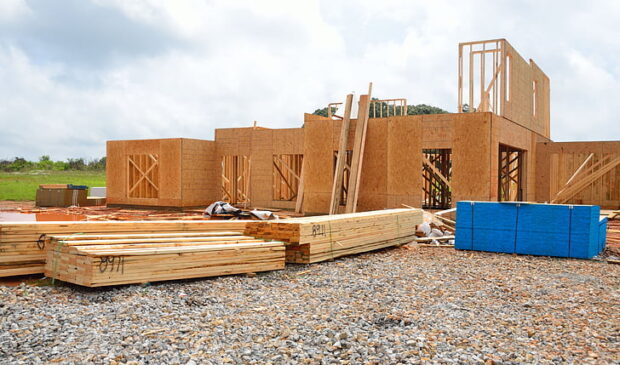Housing costs analysis endorses changes in lots sizes, compatibility requirements
Friday, August 4, 2023 by
Chad Swiatecki City staff and researchers at the University of Texas looking to reduce housing costs have published their recommendations on policies for City Council to consider.
A memo published last week offers a broad overview of the current state of affordability and development costs in Austin. The analysis by the Development Services and Housing departments and UT’s LBJ School of Public Affairs was initiated following a 2021 resolution that directed the city manager to determine the causes of and possible solutions to Austin’s increasing housing costs.
The recommendations from the 2022 UT research paper “Local Affordable Housing Challenges: Reducing the Cost of Housing” include several steps Council has taken in recent months, including adjusting minimum lot size requirements in the Land Development Code and relaxing parking and compatibility requirements. Other possible actions include:
- Consolidating and streamlining housing incentive programs, specifically SMART Housing and Affordability Unlocked;
- Relaxing rules on accessory dwelling units;
- Rezoning manufactured housing communities; and
- Pushing for state legislation concerning low-income housing and the use of private activity bonds.
Notable findings in the UT report include:
- Costs for land and construction are the largest cost drivers of housing;
- Building permit fees account for 1-3 percent of development costs;
- Across all building types, development costs were highest in Central and West Austin; and
- Multi-unit construction has a higher total cost than single-family homes but costs substantially less per unit.
The memo states that staff members in Development Services and elsewhere are working to reduce the permitting time for residential construction, noting that the department reviewed more than 35,000 building permits and 11,000 site plans and subdivisions in 2022. For reviews controlled by Development Services, the department reported it achieved on-time review 88 percent of the time.
An outside consultant also recently performed a review to create a plan for the city to streamline the development review process for housing and infrastructure projects. The initial findings from that review were delivered to the city manager in June.
The memo also includes the research and recommendations made from a 2022 Smart Cities policy research project related to the cost of housing in Austin. Its recommendations include:
- Determining if the Travis Central Appraisal District tends to undervalue property versus market values;
- More accurately tracking permit review and fee timelines;
- Looking for hidden factors aside from costs that limit residential building;
- Making the development review process more predictable by requiring initial development assessments to be binding and delivered in writing;
- Sunsetting or phasing out irrelevant portions of the Land Development Code; and
- Updating neighborhood plans regularly.
The Smart Cities report notes that as of 2022, only 34,184 homes of the 135,000 called for in the 10-year goal for the 2017 Strategic Housing Blueprint had been created. One contributor to that low number was the land use plan initiated in 1984, which was found by a 2014 city-commissioned report to be “overly complicated, not well coordinated, and does not meet modern-day best practices.” The 2014 report also describes an “ineffective” base zoning system that was repeatedly updated with new standards and overlays which “created a Land Development Code with so many layers of regulations (that) it is very difficult to understand and administer.”
In its executive summary, the Smart Cities report states, “Our qualitative data reveals that, as the costs for land and materials continue to rise, the margins for feasible housing development have narrowed. This means that additional fees, soft costs, regulatory requirements or delays can make or break a project.
“Stakeholders emphasized that Austin’s complex Land Development Code and unpredictable permit review process were significant barriers preventing them from generating additional housing.”
The Austin Monitor’s work is made possible by donations from the community. Though our reporting covers donors from time to time, we are careful to keep business and editorial efforts separate while maintaining transparency. A complete list of donors is available here, and our code of ethics is explained here.
You're a community leader
And we’re honored you look to us for serious, in-depth news. You know a strong community needs local and dedicated watchdog reporting. We’re here for you and that won’t change. Now will you take the powerful next step and support our nonprofit news organization?






